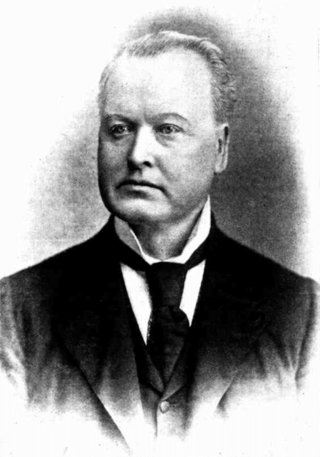1886 Victorian colonial election
From Wikipedia, the free encyclopedia
The 1886 Victorian colonial election was held on 22 February 1883 to elect the 13th Parliament of Victoria. All 86 seats in 55 electorates in the Legislative Assembly were up for election, though eleven seats were uncontested.[1]
| ||||||||||||||||||||||
All 86 seats in the Victorian Legislative Assembly 44 seats needed for a majority | ||||||||||||||||||||||
|---|---|---|---|---|---|---|---|---|---|---|---|---|---|---|---|---|---|---|---|---|---|---|
| ||||||||||||||||||||||
| ||||||||||||||||||||||
There were 31 single-member, 20 two-member and 5 three-member electorates.[1]
In early 1886 both James Service and Graham Berry had resigned as the Conservative and Liberal leaders in the coalition government. A new ministry was then elected on the eve of the election, which included the Conservative politician Duncan Gillies as Premier, Treasurer and Minister of Railways and the new leader of the Liberals, Alfred Deakin, as Chief Secretary and Minister of Water Supply.[2][3][4] In a widely expected result, the Conservative-Liberal coalition won the majority of seats in the new Parliament.[5]
Results
| Party / Grouping | Votes | % | Swing | Seats | Change | ||
|---|---|---|---|---|---|---|---|
| Liberal | 82,318 | 39.33 | 38 | ||||
| Conservative | 62,485 | 29.86 | 28 | ||||
| Liberal (Opposition) | 32,469 | 15.51 | 9 | ||||
| Conservative (Opposition) | 6,852 | 3.27 | 6 | ||||
| Independent | 25,169 | 12.03 | 5 | ||||
| Totals | 209,293 | 86 | |||||
Aftermath
Summarize
Perspective
An early priority for the new Gillies-Deakin administration was irrigation reform, responding to calls for government intervention to fund large-scale irrigation schemes. The Irrigation Act of 1886 led to the possibility of the development of major works, prevented the further private acquisition of riparian rights and declared all surface water in Victoria to be the property of the Crown.[6] In 1887 Deakin was the principal representative for Victoria at the Colonial Conference in London.[7]
After the years of rising prosperity prior to the 1886 election, Victoria's favourable reputation in London led to an influx of capital and increased immigration. Melbourne's population expanded, leading to pressures for land and housing and the extension of the suburban railway network. The resulting land speculation and building boom developed to such an extent that the orthodox banking system began to be compromised, with a large amount of speculative capital from Britain aggravating the problem. The land and building boom was encouraged by the government and compounded by Gillies' overconfidence and financial incompetence in his role as Premier and Treasurer. As land and property values in Melbourne escalated and the financial system became inceasingly corrupted, the government was loath to introduce regulations or meaningful reforms that might compromise the booming economy, nor did it make any attempt to protect investors against unsound or unscrupulous financial schemes.[8][4]
See also
References
Wikiwand - on
Seamless Wikipedia browsing. On steroids.


